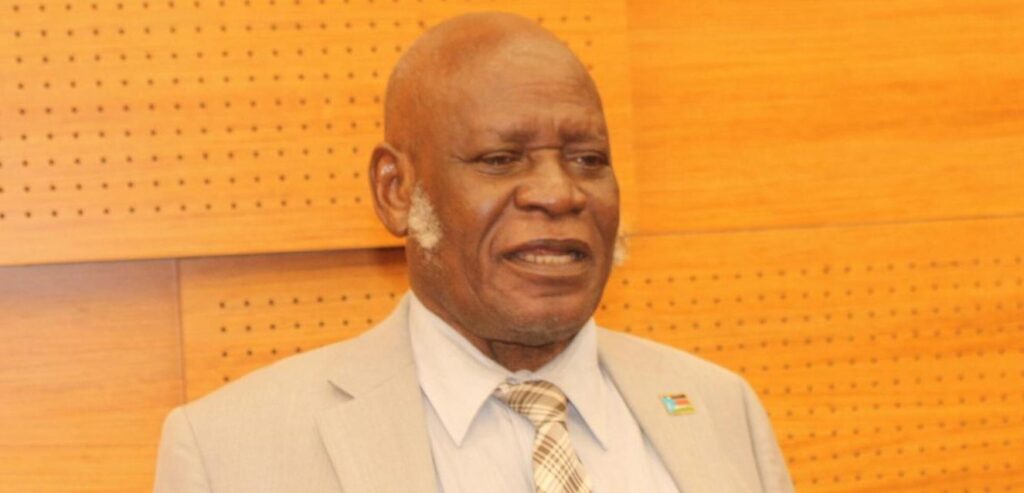Members of South Sudan’s parliament are demanding payment of their salaries, medical allowances and other entitlements — including recess funds — before the legislature reopens, a move that could delay the assembly’s scheduled resumption.
The Transitional National Legislative Assembly was initially set to reconvene on June 9 after a five-month recess.
Parliament Speaker Jemma Nunu Kumba recently met with President Salva Kiir and agreed to reopen the legislature in the first week of June, with a key agenda item being the debate and approval of the 2025-2026 national budget. Kumba described the budget as critical to addressing the country’s economic and development challenges.
However, several lawmakers told Radio Tamazuj on Thursday that they doubt the June 9 reopening will proceed as planned, citing unresolved issues that could hinder the parliament’s timely return.
Juol Nhomngek Daniel, a lawmaker representing Cueibet County under the SPLM-IO, said lawmakers must first receive their medical allowances and other dues before the session resumes. He noted that parliament frequently loses members due to illnesses exacerbated by a lack of medical care.
Nhomngek also stressed the need for security guarantees to ensure the safe return of SPLM-IO lawmakers, some of whom remain outside the country following the detention of their leader, Riek Machar, in March.
Additionally, he called for the clearance of outstanding salaries and medical allowances, describing these as essential for the effective resumption of legislative duties. Only after these issues are resolved, he argued, should the government present the 2025-2026 budget.
“The first thing to be done is the welfare of the MPs. And then the security guarantees — the majority of the SPLM-IO MPs are under threat. Some are afraid to join the SPLM-IO group which the SPLM has supported,” Nhomngek said, referring to a faction led by Peacebuilding Minister Stephen Par Kuol.
He urged Kiir to publicly assure SPLM-IO members they would not face arrest, adding that the ruling SPLM party must uphold its peace agreement obligations to create a conducive environment for parliamentary work.
“The priority is to revive everything in the agreement so all parties can work. Then, secondly, the MPs’ welfare needs to be taken care of. MPs have not been paid their money, and now they’re unable to come to the office,” he said.
Nhomngek also called on the SPLM to involve regional bodies like the Intergovernmental Authority on Development (IGAD) in Machar’s case, arguing that the detained leader’s position was secured by the peace agreement and thus deserves justice.
His concerns were echoed by Hellen Ngaidok Lokurnyang, a lawmaker representing the Greater Pibor Administrative Area (GPAA), who confirmed that lawmakers have not received medical allowances for three years.
She said each MP is entitled to $30,000 in outfit allowances, medical allowances and holiday packages — none of which have been paid since 2021.
“Yes, what the other MPs have said is true. Not only that, but also recess money has not been paid. We have gone for three unpaid holidays without pay, making it difficult to visit our constituencies,” Lokurnyang said.
“As for the medication, outfit allowances and holiday packages, some of us have forgotten about them because I don’t even remember the last time we received them.”
She said MPs last received a $15,000 medical allowance in 2022 and warned that without urgent action, many lawmakers may skip the upcoming session.
While praising the vice president for the economic cluster for ensuring monthly salary payments to civil servants, Lokurnyang lamented the lack of liquidity in banks, which often leaves MPs unable to access their funds.
“The leadership of the parliament has to work on something — either outfit allowance or medication — before opening. Otherwise, some members might not attend the session at all,” she said.
“MPs’ salaries are paid together with civil servants into bank accounts, but accessing or withdrawing the money is a story for another day.”
Lokurnyang, a member of the Committee on Human Rights and Humanitarian Affairs, added that she has yet to receive her May salary or arrears from last year, when civil servants went unpaid for over a year.
Oliver Mori Benjamin, chairperson of the Parliamentary Committee for Information and Communication, attributed the delay in reopening to “circumstances beyond our control” but did not elaborate. He said a new date would be announced soon.
“We will announce the new date to all media institutions, the public and the honorable members of Parliament,” Mori told state-media on Thursday.
Reacting to the uncertainty, Edmund Yakani, head of the Community Empowerment for Progress Organization (CEPO), linked the postponement to delayed payments to lawmakers.
“Opening parliament is financially demanding, as the lawmakers are preconditioning their allowance or arrears allocation first. Rt. Hon. Speaker has done her part, but the Ministry of Finance has delayed the timely release of cash,” he said.
Yakani warned the delay could push the reopening “until further notice,” jeopardizing the passage of the 2025-2026 budget. He called for leadership intervention to ensure parliament resumes promptly and urged SPLM-IO members to participate, stressing that the political transition requires genuine compromise from all parties to the peace agreement.
Under the East African Community (EAC) Treaty, partner states’ finance ministers must present budgets simultaneously under a common theme. The EAC fiscal year runs from July 1 to June 30 of the following year.




